Iranian Film Director Cannot Accept Cannes Jury Role Due To Flight Ban
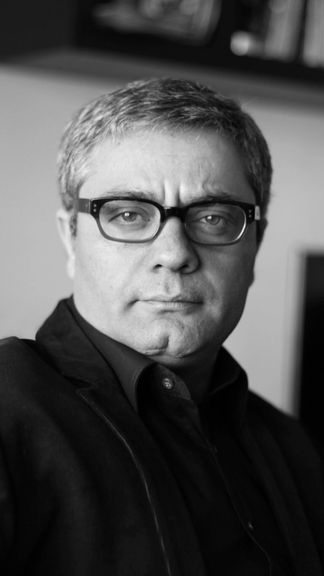
Dissident Iranian filmmaker Mohammad Rasoulof cannot participate in the Cannes Film Festival as he is barred from leaving Iran.

Dissident Iranian filmmaker Mohammad Rasoulof cannot participate in the Cannes Film Festival as he is barred from leaving Iran.
The Iranian film legend was due to be on the festival’s Un Certain Regard jury but along with scores of other celebrities and sports stars, is subject to a travel ban.
Other punishments levied by the regime to celebrities include bank account freezes and communications bans.
Rasoulof was temporarily released from Evin prison in February due to health issues, offering hope that he could attend the prestigious French film festival as a jury member.
However, when the festival announced the names of the jury members on Wednesday, Mohammad Rasoulof’s name could not be seen.
He has been under house arrest since 2017 when his film "A Man of Integrity" won the main prize at the Cannes Film Festival in the Un Certain Regard section.
Due to his anti-regime content, he was given six years in prison in 2010 that was reduced to a year on appeal, and he was also banned from making films for 20 years.
He defied the ban and went on to make his drama There Is No Evil, capturing Iranian society under the Islamic Republic regime, which won the Berlinale Golden Bear in 2020.
Rasoulof and his colleague Mostafa Al-e Ahmad were arrested in July 2022 after signing an appeal along with dozens of other filmmakers and film industry workers. The appeal called on security forces to “lay down” their weapons.
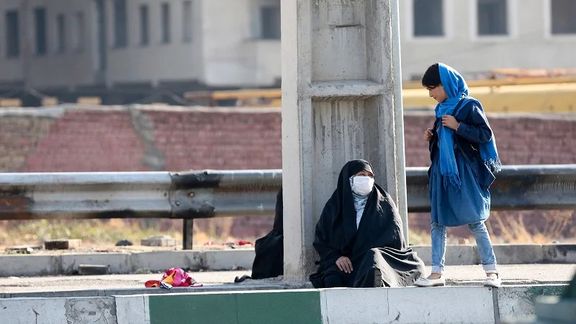
The Iranian man took a jar of homemade pickles to the neighborhood shop and asked to barter it with a chicken as he had no money left, in the oil-rich country.
Media in Tehran and other cities are reporting dozens of similar cases as no one actually knows how much the annual inflation rate is after the government stopped publishing its monthly statistics.
Aftab News, a website which dares to be more critical of the authoritarian regime, quipped Wednesday that President Ebrahim Raisi still insists, “The progress by Iran has angered the enemies,” meaning the United States and its allies.
Mehr News Agency, a conservative website and a supporter of Iran’s hardliners reported that families share rented apartments, as they cannot afford the soaring security deposit and monthly rent.
Others simply must move to cheaper and cheaper areas, getting farther than the cities and have to commute somehow if they do not own a car. Vehicles have also become unaffordable for many with the cheapest options costing billions of rials.
Ordinary Iranian salaries are less than $200 a month, while rents for simple apartments have soared to beyond $300. Couples must work two jobs just to pay the rent.
Although Iranians have been losing their purchasing power since 2018 when their currency nosedived, the situation took a turn for the worse last September as the rial began to fall further, losing half its value. The US dollar rose from around 260,000 rials last August to near 550,000 in late April.
The minimum monthly income needed for bare necessities for a family of 3.3 people remains at around $500 a month, but the rials a family earns buys much less each week.
The political leadership, however, continues its nuclear program and its anti-West policies, so far refusing to compromise with the United States.
Even some real estate agents will soon be forced to go out of business as they cannot sell properties overpriced for the impoverished population. Some agencies close just one deal a month and cannot even afford rent for their own office.
Etemad newspaper reported that people who just a few months ago were helping others in need are now unable to afford their own groceries. Prices for eggs, milk, meat and rice have doubled in less than a year.
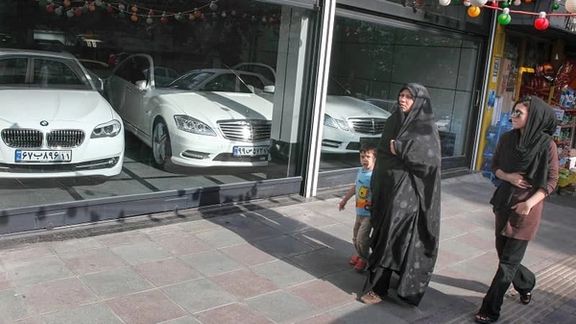
“Until a few months ago there were upper middle-class people who were quietly leaving some money with neighborhood stores so that they could give out food to needy customers who were asking to buy things on credit,” Etemad wrote, “but in the last 6-7 months these philanthropists have disappeared.”
One such person who went to the butcher to pay the debts of those who could not pay, realized that most people were buying only chicken skin and bones, the newspaper reported.
One kilogram of chicken fillet now costs 1.8 million rials, while an ordinary salary is around 70,000 rials. A few months ago, the same chicken meat was sold at 630,000 rials. Now, people are forced to buy the cheaper parts, such as skin or stripped bones.
In poorer Tehran neighborhoods, even butchers are opting to close shop and start another business as far fewer people can afford beef or chicken.
Desperate people try to barter homemade jams or pickles for protein foods.
As million of people are becoming impoverished, Aftab News quotes psychologists and doctors about the damage inflicted by malnutrition on children and adults alike. While mothers have to breastfeed babies with intake of nutritious food, adults face more health problems, such as cancer, that many say has spiked in recent years.
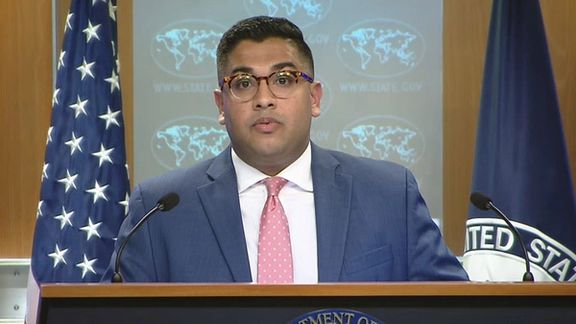
US State Department said Wednesday that closer ties between Iran and Syria should be of great concern, not just to US allies and the region, but to the world more broadly.
Department spokesperson, Vedant Patel, told reporters Washington has made clear to partners that it does not support others normalizing ties with Damascus.
Iranian President Ebrahim Raisi met his Syrian counterpart Bashar al-Assad in Damascus on Wednesday in the first visit by an Iranian head of state since Syria's war began in 2011, underlining close ties as Syrian relations with Arab states thaw.
Speaking to pro-Iran broadcaster al-Mayadeen on the eve of his visit, Raisi said the trip would "consolidate and develop" ties with Syria and other allies, including Lebanese armed group Hezbollah, which also intervened in Syria on Assad's behalf.
Raisi's visit comes as Iran and regional rival Saudi Arabia rebuild relations after years of tensions, and as Arab states that shunned Assad - including Riyadh - rebuild ties with his government.
Assad, speaking alongside Raisi, welcomed "the development" of ties between Tehran and Riyadh.
Raisi and Assad signed a long-term strategic cooperation agreement, including a memorandum of understanding on oil industry cooperation, the Syrian state news agency reported.
Raisi praised Syria for resisting what he described as U.S. pressure and confronting "takfiris", a term used to describe jihadists such as Islamic State. "Iran will always stand by Syria ... and supports its sovereignty," he said.
Raisi and Assad signed a long-term strategic cooperation agreement, including a memorandum of understanding on oil industry cooperation, the Syrian state news agency reported.
Reporting by Reuters
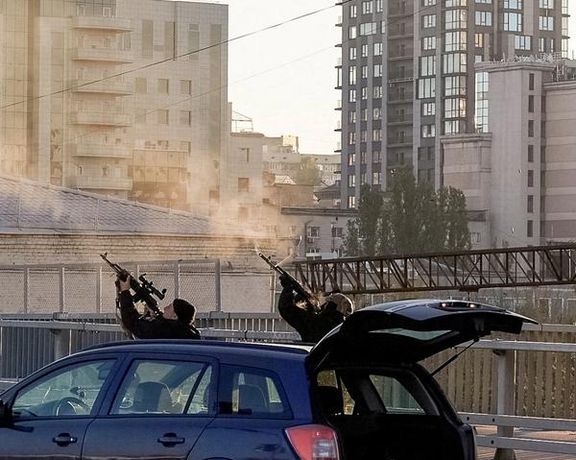
Russia launched 26 Iranian-made Shahed drones against Ukraine overnight Wednesday, but the Ukrainian air force said it downed 21 out of 26 suicide UAVs.
The drones were launched from Russian territory in the north and from the south on the eastern coast of the Azov Sea, Ukraine’s air force said.
Thirteen drones targeted Kyiv, but all were intercepted, the Kyiv City Military Administration said. Some wreckage fell on buildings and caused damage.
“Another massive drone attack on Kyiv,” Ukraine’s defense ministry tweeted. “It is obvious that the Russian military feels confident only when attacking peaceful cities.”
There is no reliable information where the five drones that evaded air defenses hit.
Russia has used hundreds of Iranian kamikaze drones since October to hit Ukrainian civilian infrastructure and to try to overwhelm air defenses during massive missile attacks.
The latest large-scale missile attack took place overnight on May 1, killing more than 30 civilians.
The United States and Europe have been supplying air defense weapons to Ukraine to prevent such Russian attacks and have sharply condemned Iranian supply of drones.
Iran first denied it had sent the weapons to Russia but in November Foreign Minister Hossein Amir-Abdollahian claimed the drones were shipped before the Russian invasion.
Ukraine has become more successful in shooting down the relatively slow flying Iranian drones. On December 5, the military said it had downed 60 of 70 Shahed drones, but it has been requesting more Western air defense systems.

Imprisoned human rights activist Narges Mohammadi accused the Islamic Republic of involvement in the poisoning of female students in Iran.
In a message after winning the UNESCO Prize for Freedom of the Press, Mohammadi said: "The regime pursues a policy that prevents girls from going to school by creating terror."
She further compared the Islamic Republic with the Taliban, stating that the Afghan militants "overtly" seek to deprive girls of the right to education, but the Islamic Republic pursues it "deceitfully".
The serial poisoning of students has been ongoing for over four months. The perpetrators have not been identified, while the attacks have spread to more and more cities.
Elsewhere in her remarks, Mohammadi urged foreign states to do more to topple the regime and liberate Iranian society.
"In adopting your policies, consider supporting civil society, the ones who take to the streets, and the political prisoners who are at risk of being executed. To advance the peaceful goals of the Iranian people, weaken the power of the regime to suppress, imprison, torture, and execute," she added.
UNESCO announced on Tuesday that Narges Mohammadi, Nilofar Hamedi and Elahe Mohammadi, three female journalists imprisoned in Iran, are the winners of this year's World Press Freedom Prize of this organization known as Guillermo Cano.
Founded in 1997, the Guillermo award is given each year to individuals or institutions that have contributed to press freedom in dangerous environments.
Earlier this year, the Swedish Olof Palme Foundation awarded its 2023 prize to three female activists, including Iran’s Narges Mohammadi, for their efforts in the fight for women's freedom.
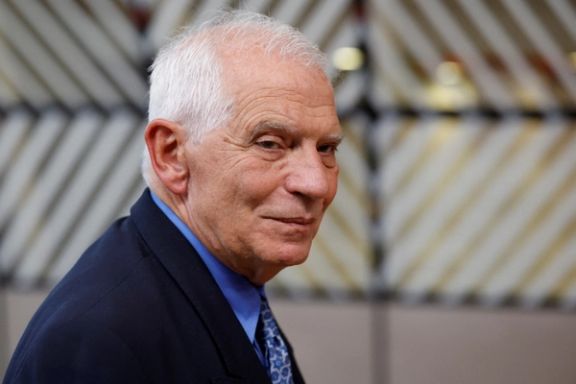
The European Union has slammed recent rocket and terrorist attacks against Israel, reiterating the country’s right to defend itself.
However, the EU’s Foreign Policy Chief, Josep Borrell, stressed that “any response must be proportionate and in line with international law”.
As Israeli Prime Minister Benjamin Netanyahu's government seeks to improve ties with the European body, Foreign Minister Eli Cohen met with Borrell in Brussels on Tuesday.
The EU’s Spanish diplomat urged Israel to refrain from “measures that could heighten the already high level of tension and jeopardize the very possibility of a future just and sustainable peace based on the two-state solution.”
During his visit, Cohen also discussed Iranian attempts to target Jews and Israelis on European soil with EU Parliament President Roberta Metsola.
According to the Times of Israel, they discussed the importance of the EU listing the Iranian Revolutionary Guard Corps as a terrorist group and banning all business with it.
In January, the European Parliament called on the 27-state body to list the Revolutionary Guards as a terrorist entity, blaming it for the repression of domestic protests and the supply of drones to Russia.
However, Borrell claimed the EU cannot list Iran's IRGC as a terrorist entity until a European court has determined that they are.
“European countries understand today more than ever the danger from Iran, and see eye-to-eye with Israel regarding the need to confront terror that comes from and is funded by the Iranian regime,” Cohen stated after the meeting with Metsola.